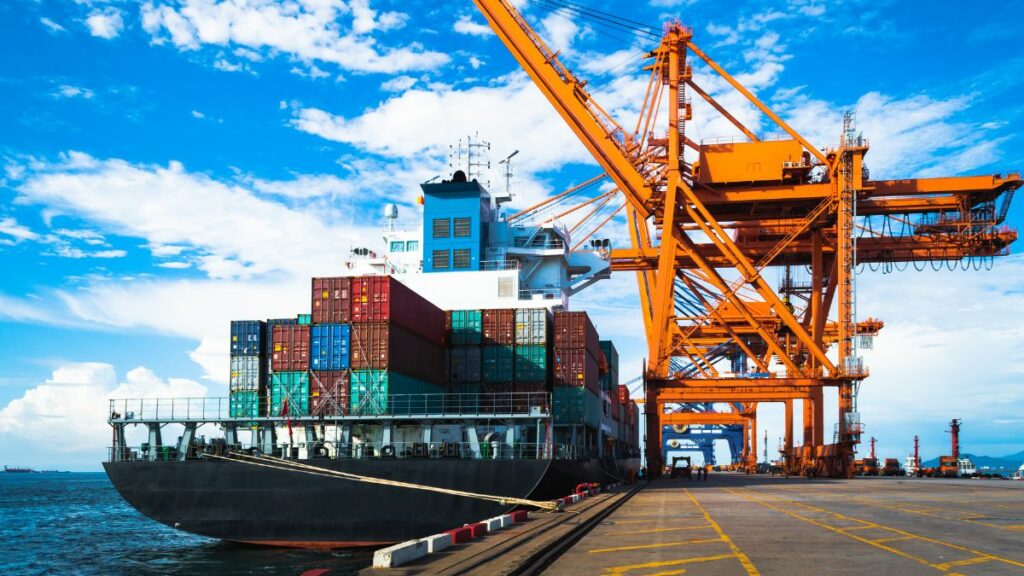What is The Future of Eco-Friendly Shipping?
As awareness of environmental issues around the world grows, the demand for eco-friendly shipping solutions is rising. The future of shipping is increasingly green, driven by technological advancements, regulatory pressures, and consumer preferences for sustainable practices.
Here’s a look at what the future holds for eco-friendly shipping and the innovations set to revolutionize the industry.
Alternative Fuels and Electrification
The shipping industry is a major contributor to greenhouse gas emissions, primarily due to the reliance on fossil fuels. To mitigate this, the future of shipping is leaning heavily towards alternative fuels and electrification.
The use of electric vehicles (EVs) is set to increase, supported by advancements in battery technology and expanded charging infrastructure. Companies like Tesla and Rivian are leading the charge with electric trucks that promise to reduce emissions and operational costs.
Hydrogen fuel cell technology is another hopeful alternative. These cells generate electricity through a clever chemical reaction between hydrogen and oxygen, which then produces only water as a byproduct. This technology is particularly suitable for long-haul trucking and heavy freight.
Biofuels, derived from renewable sources like plant materials and waste, offer a more sustainable alternative to traditional fossil fuels. As production processes become more efficient, biofuels will have a crucial role in reducing the carbon footprint of shipping.
Zero-Emission Ships
The maritime sector is also undergoing significant transformations with the development of zero-emission ships. These innovations aim to drastically reduce the environmental impact of ocean freight. Modern wind-powered ships utilize advanced sail designs and wind-assist technologies to harness wind energy, reducing reliance on fossil fuels.
Ships powered by electricity and hybrid systems are emerging, using batteries for propulsion and energy storage, significantly cutting down emissions during voyages.
Alternative marine fuels such as ammonia and methanol are gaining traction. These important fuels can be produced from renewable sources and offer a cleaner combustion process compared to conventional marine diesel.
Advanced Logistics and Route Optimization
Efficient logistics and smart route planning are essential for minimizing the environmental impact of shipping operations. Artificial intelligence and machine learning algorithms helpfully optimize delivery routes, considering factors like traffic, weather conditions, and fuel efficiency. This reduces fuel consumption and emissions.
Dynamic routing systems adapt in real-time to changing conditions, ensuring the most efficient path is always taken. This not only saves time but also reduces the environmental footprint.
Encouraging collaboration among shippers to consolidate shipments can reduce the number of trips required, which can lead to lower emissions. Shared logistics platforms and digital freight marketplaces facilitate this process. Shiply USA is one such platform where you can find shipping companies who will add your items to their overall load to minimize carbon footprint.
Sustainable Packaging Solutions
Packaging is a significant component of the shipping industry, and innovations in sustainable packaging are crucial for reducing waste and environmental impact. The use of biodegradable and compostable materials for packaging is set to increase. These materials break down naturally, reducing landfill waste and pollution.
Implementing reusable packaging solutions, such as durable containers and pallets, helps minimize waste. Some companies offer return programs where customers can send back packaging for reuse. Reducing the amount of packaging used without compromising protection is another key trend. This involves designing efficient packaging that minimizes material usage and space.
Regulatory and Consumer Pressure
Governments and consumers are driving the shift towards eco-friendly shipping through regulations and changing preferences. Governments worldwide are beginning to implement stricter regulations to reduce emissions from shipping. Compliance with these regulations will require companies to adopt greener technologies and practices.
Increasingly, consumers are prioritizing sustainability in their purchasing decisions. Companies that adopt eco-friendly shipping practices can boost their brand image and attract environmentally conscious customers.
Conclusion
The future of eco-friendly shipping is bright, driven by technological innovation, regulatory mandates, and consumer demand for sustainable practices. As alternative fuels, zero-emission ships, advanced logistics, and sustainable packaging become mainstream, the shipping industry will significantly reduce its environmental impact.
Embracing these changes is not only beneficial for the planet but also offers a competitive advantage in a market increasingly focused on sustainability. The transition to greener shipping practices is essential for a sustainable future, and the industry is well on its way to achieving this goal.






